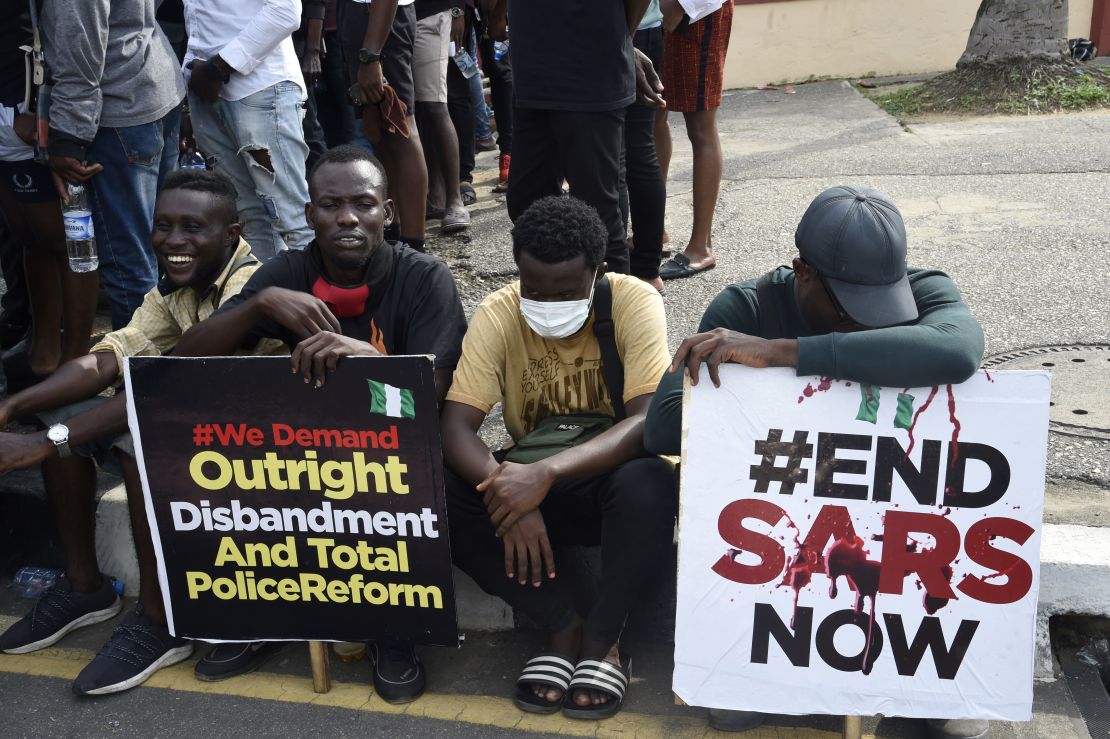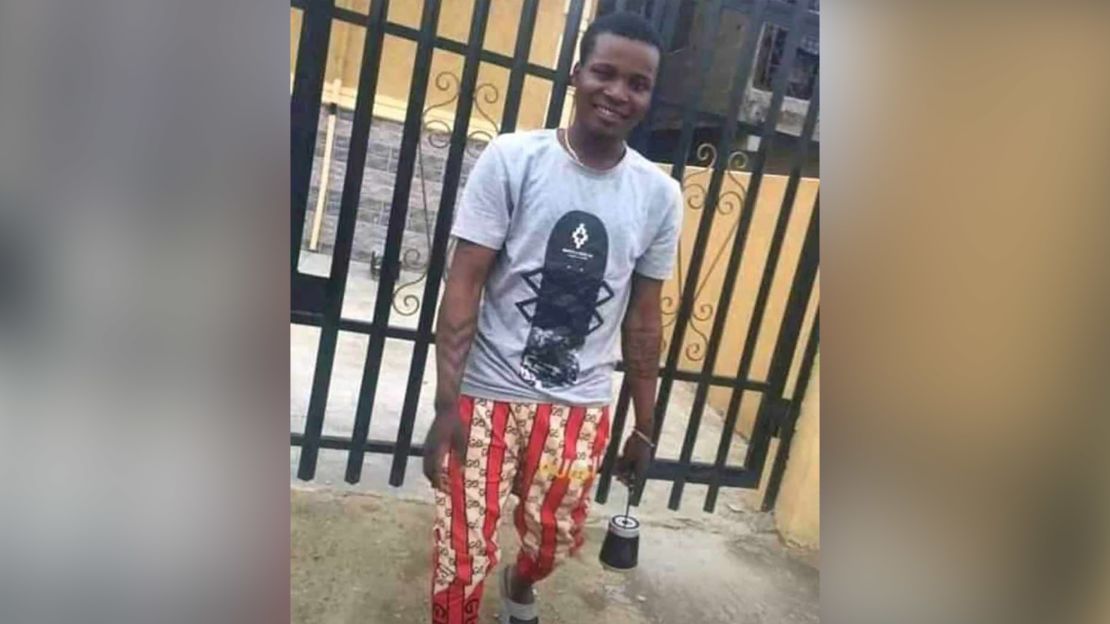At least 10 people have died in protests over police brutality in Nigeria, Amnesty International said Tuesday.
The the human rights group told CNN police have used excessive force against unarmed protesters since the protests started last Thursday.
“So far, Nigerian Police have killed at least 10 people since the start of protests against callous operations of SARS,” according to Amnesty International.
SARS refers to the Special Anti-Robbery Squad, a controversial Nigerian police unit that has been the target of nationwide protests demanding an end to police brutality. Police announced Sunday the unit will be dissolved.
“The excessive use of force by the police in response to the protests reveals the longstanding disregard for the right to life by Nigerian security forces,” Amnesty said.
The agency said excessive use of force “without justifiable grounds is a crime under international law.”
“Amnesty International therefore calls for an urgent review of the use of force and firearms by police officers against protesters and thorough, independent and impartial investigation into all cases of violence including deaths that occurred during the #EndSARS protests,” Seun Bakare, head of programs at Amnesty International Nigeria, told CNN.
CNN contacted Nigeria police spokesman Frank Mba repeatedly for a comment but did not receive a response.

A new tactical unit to replace the dissolved SARS will be known as Special Weapons and Tactics, or SWAT.
Former police officers from SARS will be part of the new unit but will undergo psychological and medical examinations to make sure they are fit, according to the inspector general of police, Mohammed Adamu.
“The officers are expected to undergo this process as a prelude to further training and reorientation before being redeployed into mainstream policing duties,” said Adamu.
Victim was ‘gentle and humble’
One of the people who died in the protests was identified as Jimoh Isiaq, 20. He was killed by a stray bullets fired at protester. He was standing some distance from the protesting crowd in Ogbomosho, southwest, Nigeria, his family says.
“The bullet police shot hit his abdomen and came out from the back,” Jimoh Kazeem, Isiaq’s elder brother, told CNN.
“Isiaq was very gentle and humble. I have not seen him fight anyone before. He is one of the pillars of our family. His death is very painful,” Kazeem added.

Kazeem told CNN that Isiaq’s widow is devastated and he leaves behind a 2-year-old daughter.
The family says it plans to sue the Nigerian police force if authorities don’t investigate his killing.
“The protest was largely peaceful before the police fired that shot from the evidence we had gathered. We know the shots were fired by policemen stationed in Owode police station. We know the names of the officers that fired the shots. We are not short of evidence to prove police brutality,” Hussein Afolabi, Isiaq’s family lawyer, told CNN by phone.
“Three other persons were killed at Ogbomosho (on Sunday) and we have several others injured. We spoke to a lot of people on the ground. The other two are also unarmed protesters shot by the police. We have overwhelming evidence,” said Afolabi. “People are complaining against police brutality. It is in our face, it is everywhere.”
Oyo State police spokesperson Fadeyi Olugbenga denied the allegations. “The police did not shoot at anybody as widely reported,” he said, in a text message response to CNN.
Olugbenga did not respond to CNN’s attempts to reach him by phone for further comment.
President Muhammadu Buhari said Tuesday, “We also deeply regret the loss of life of the young man in Oyo State during the recent demonstrations. I have directed that the circumstances of his death should be thoroughly investigated.”
Another man died Monday in protests in a suburb of Lagos, the country’s commercial nerve center, where some parts of the city have been brought to a standstill in the past few days as protesters blocked major roads with their demands for police reform.
The man was identified as 55-year-old Ikechukwu Ilohamauzo. Eyewitnesses said he was a passerby hit by a stray bullet fired by police officers, an allegation denied by police, who blamed “hoodlums,” according to local media reports.
‘Police still killing protesters’
Buhari on Tuesday addressed the “genuine concerns and agitations by Nigerians about the excessive use of force, and in some cases extrajudicial killings and wrongful conduct, by men of the Nigerian police force.” He said the disbanding of SARS is “only the first step” in extensive police reform.
“We will also ensure that all those responsible for misconduct or wrongful acts are brought to justice,” said Buhari, adding that “the vast majority of men and women of the police force are hard-working and diligent in performing their duties.”
In other cities, instances of police arresting and harassing protesters were also reported.
But protesters said verbal assurances are not enough. They also fault the government’s decision to deploy officers from SARS into other police units, saying it compounds the problem.
They say their demands have now shifted from a targeted ban on a particular unit to overall police reform.
“Protesters are still being shot and killed and the government is talking about ending SARS. The protest has moved from ending SARS to ending police brutality in general. The government, which claims to have banned SARS, are still killing protesters. This is a fluke,” said Okoye Paul, who has been a part of the Lagos protest since last week.
“Redeploying is not reform. Many other police units are bad, too. The reform and retraining of police officers should involve an independent body because the police cannot be the judge of its own case. We do not trust the government, above all, to follow through with the promises.”
Nigerian police allegedly fired tear gas, water cannons and live ammunition at protesters in the capital of Abuja, according to videos seen by CNN.
Protests continued Tuesday across cities in Nigeria, in places such as Port Harcourt, Benin city, Enugu state, all in southeast Nigeria.






